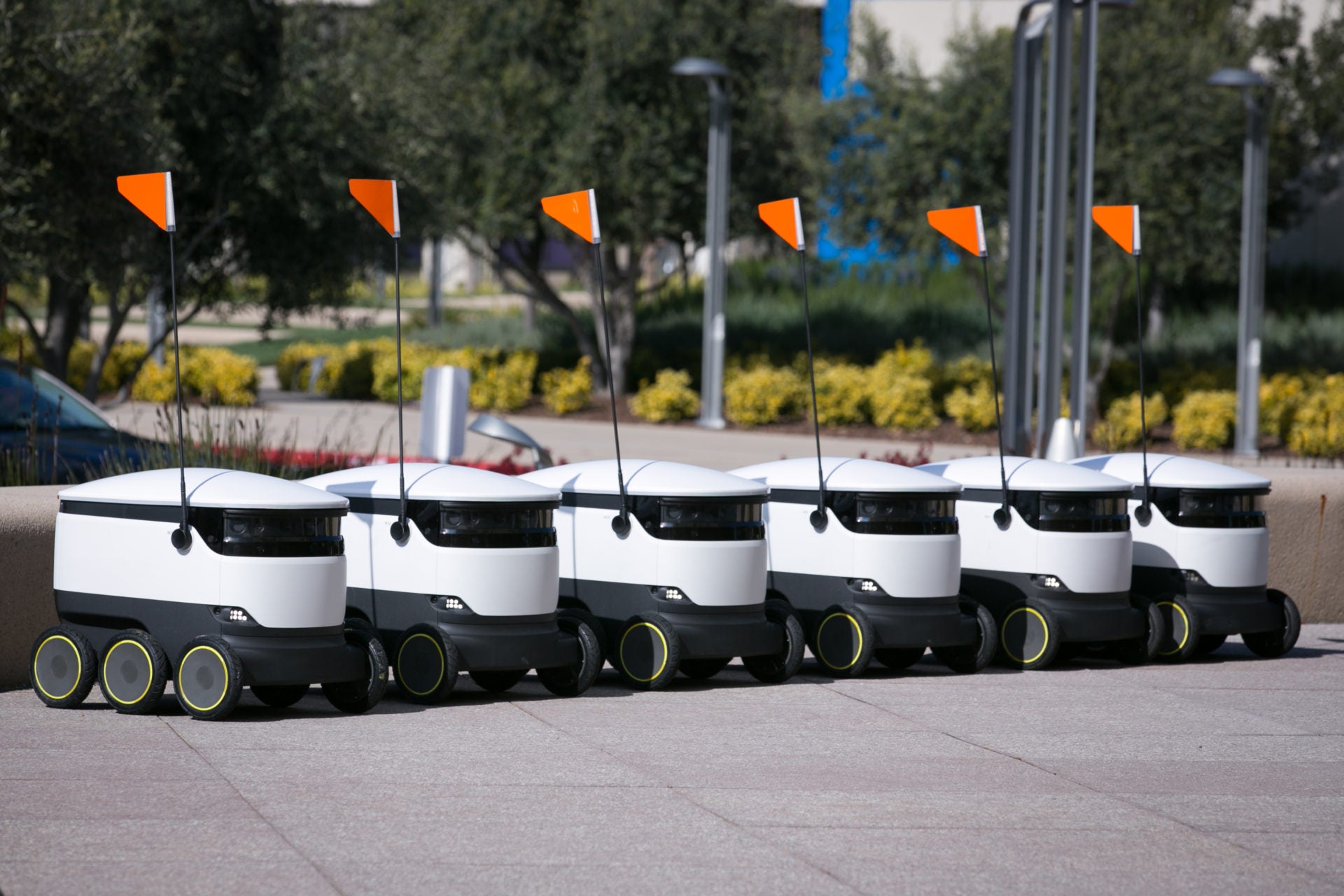
Delivering over 6,000 pizzas, 7,000 gallons of milk, 8,000 coffees, 9,000 sushi rolls, 15,000 bananas and over 3,700 nappies since its launch in 2014, Starship Technologies has rightfully earned its place at the forefront of the delivery robot market.
The good fortune continues for Starship, created by Skype co-founders, after today the company announced that it has closed $40m in Series A funding, bringing its total to $85m.

Access deeper industry intelligence
Experience unmatched clarity with a single platform that combines unique data, AI, and human expertise.
Using sensors, artificial intelligence and machine learning, Starship robots can cross roads, climb curbs and operate in adverse weather conditions to complete local deliveries of groceries and packages. Although not yet a common feature in all cities, the delivery robots market is expected to be worth $34bn by 2024.
Starship is ahead of this curve, operating commercially in 20 countries around the world, with robots travelling more than 350,000 miles, and crossing four million streets, after celebrating its 50,000th delivery in April this year.
Since the robots are battery powered they reduce pollution as well as congestion by removing cars and vans from the delivery process.
The company has also played a role in helping to legalise the operation of delivery robots on pavements across nine US states and several countries.

US Tariffs are shifting - will you react or anticipate?
Don’t let policy changes catch you off guard. Stay proactive with real-time data and expert analysis.
By GlobalDataStarship Technologies funding accompanied by expansion plans
Today, the company also announced that it plans to expand its service to 100 university campuses in the next 24 months. The company currently delivers to two universities, George Mason University and Northern Arizona University, but according to The Verge, this could amount to 5,000 robots across these campuses by 2021.
The company has focused its efforts on this area, as well as neighbourhoods and corporate campuses, with ambitions of delivering to one million students, according to TDK Ventures, one of Starship’s investors.
“This new investment will see Starship expand onto more campuses as we head towards a goal of offering our service to over one million students,” said Lex Bayer, CEO of Starship Technologies.
“An entire generation of university students are growing up in a world where they expect to receive a delivery from a robot after a few taps on their smartphone. The reception to our service both on campuses and in neighborhoods has been phenomenal. Our customers appreciate how we make their lives easier and give them back the gift of time.”
Delivery robot market grows
The growing adoption of AI, combined with a consumer demand for rapid deliveries have seen over companies invest in this area. Yesterday, Segway-Ninebot revealed its first outdoor autonomous delivery robot.
Nicolas Sauvage, Managing Director of TDK Ventures believes that for now, Starship is ahead of the competition in this area:
“We’ve evaluated the autonomous tech market segment around the world, and Starship is miles ahead of others in bringing advanced technology valued by real paying customers. Starship’s machine learning, computer vision, and sensor fusion is the most advanced we’ve seen in autonomous robotic delivery. We look forward to contributing to the success of Starship in this important and emerging space.”
In addition to university campuses, Starship also delivers groceries and packages in neighborhoods and a range of items on around the globe.







